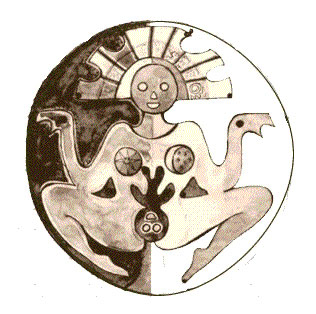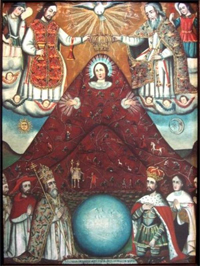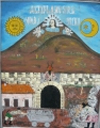 The Pachamama is the highest divinity of the Andean people since she is concerned with fertility, plenty, the feminine, generosity and ripening crops, besides providing protection.
The Pachamama is the highest divinity of the Andean people since she is concerned with fertility, plenty, the feminine, generosity and ripening crops, besides providing protection.
The name Pachamama is translated into English as Mother Earth since pacha is a word in both Quechua and Aymara that means earth, cosmos, universe, time, space, etc. in English and mama means "mother."
The concept of Pachamama is directly related to agricultural wealth since the economy of the indigenous peoples is based on agricultural production. Nevertheless, most of the population in Bolivian cities is indigenous (mainly Aymara and Quechua), including as regards their customs, so their beliefs are still common in modern society. However, there have been some changes as the Catholic faith has become more prevalent. In some ceremonies the Pachamama is worshipped through the Virgin Mary.

 This symbiosis or sincretism can be clearly seen in the picture The Virgin of the Mountain where the Mother Earth, represented by the mountain is above the Virgin Mary as well as being her skirt.
This symbiosis or sincretism can be clearly seen in the picture The Virgin of the Mountain where the Mother Earth, represented by the mountain is above the Virgin Mary as well as being her skirt.
Worshipers venerate the Pachamama with offerings through rituals like the challa. Likewise it is very common for the Pachamama to receive the first serving of beer at their social gatherings since believers pour a few drops on the ground before they take their first sip. This is a way to thank and feed the Pachamama.
One of the most common offerings to the Pachamama in the Aymara culture is a llama fetus which, once dried, is buried under the foundations of a building or in the crop fields during August to attract wealth and wellbeing and to keep bad energy away.
Also, in the Andean culture the Pachamama is the goddess who protects all material goods and at the same time rules over the spiritual universe. Therefore, she symbolizes the human environment in every aspect, so those who believe in her will maintain a balanced, reciprocal relationship with her.


